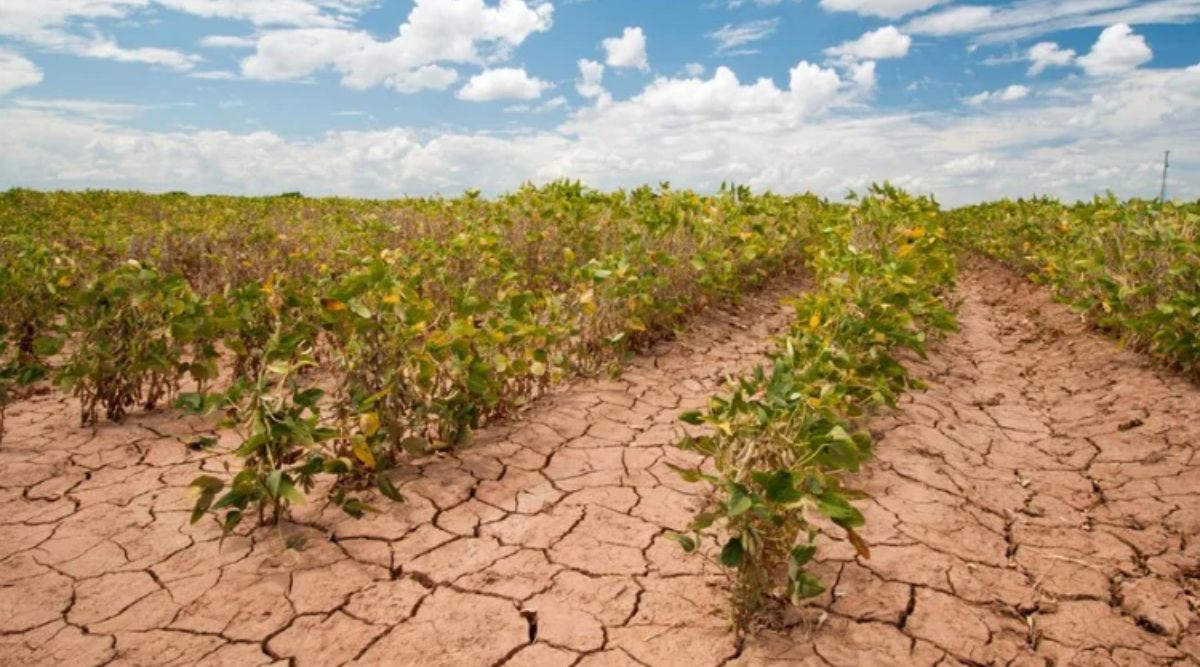Climate Change most serious problem in agriculture, How to overcome it?
Apart from organic farming, adopting climate-smart agriculture, holistic farming, and regenerative agriculture is very beneficial.
The effect of climate change on agriculture is increasing day by day. For this, on the one hand, the greenhouse gases produced by pollution are responsible; on the other hand, chemical fertilizers and toxic pesticides used to achieve more agricultural production have played a huge role.
Due to these, the cycle of weather and monsoon has become haphazard, while the ‘ecological system’ associated with the natural exchange between biotic and abiotic elements has also been affected. Due to this, there has been a significant decrease in soil fertility. That’s why Kisan of India is telling you what methods are being adopted to promote eco-friendly farming worldwide, including in India.
Organic Farming
While on the one hand, the productivity of the soil is decreasing due to the use of chemical fertilizers and pesticides in the fields, on the other hand, traces of many poisonous elements also reach the human body through food, which becomes the cause of many diseases. To deal with this crisis, organic farming models are being adopted in different parts of the world because organic farming is the most friendly to the environment and plays an important role in preventing global warming.
Due to no dependence on chemical fertilizers, the cost of organic farming is also less. This improves the productivity of crops and soil fertility. Increases the soil’s moisture-holding capacity and slows irrigation water’s evaporation. Organic farming is very beneficial for rainfed or rainfed farming. Due to this, the farmer earns more with less cost. Only organic products can survive in the international market competition.

Climate Smart Agriculture
Climate-smart agriculture system has been developed by agricultural experts to save agriculture from the challenges of climate change. A climate-smart agriculture system is seen as the integrated management of cropland, livestock, forest, and fisheries. In India, too, national-level projects have been started for this. They are designed to meet the challenges of food security and climate change together.
Climate smart agriculture incorporates adaptation, mitigation and other practices. This reduces the risk of farming and increases the income of the farmer.
Farm Water Management
Crops need more irrigation to counter the warming caused by climate change. For this a two-pronged strategy is adopted. Firstly, to conserve the moisture in the soil and secondly, to improve the groundwater reserves by harvesting maximum rain water. Due to climate change, watershed management is being given a lot of importance all over the world in view of the changes in the weather and the amount of rain is continuously decreasing.
This reduces the cost of irrigation and increases farm income. That is why many schemes are being implemented to promote water conservation at the local level with the cooperation of the Central and State Governments. Because the water conservation system is not sufficient, the pure and sweet water of rain on a large scale reaches the salty water of the sea through the rivers.
Holistic Agriculture
In order to avoid agrarian crisis, farmers in different parts of the world are emphasizing on low-risk holistic farming instead of monoculture. Many crops are produced in this system. The biggest feature of this system is that if one crop fails due to any reason, then the livelihood of the farmer can be run from the other crop. The holistic farming system enables small farmers to get enough produce for their home and market. It helps them to secure a balanced nutritious diet for the family, gain employment and income throughout the year, and reduce weather and market risk.
Regenerative Farming
Regenerative agriculture or regenerative agriculture is also being adopted nowadays to save agriculture from the side effects of climate change. This system increases biodiversity. Enriches the soil. Improves watershed and strengthens ecology. The aim of regenerative agriculture is to make proper use of the soil and the biomass and carbon content present in it. This brings great relief to the farming and herding communities.
Regenerative agriculture is also a decades old and scientific farming method. It is being adopted by farmers all over the world. In this system, the emphasis is on judicious use of natural resources of farming. In this farming, such eco-friendly methods are given importance, so that the productivity of the soil can be maintained.
Also Read: Organic Fertilizer : How Ranjit Singh choose the path of Organic Fertilizers?
Contact us – If farmers want to share any valuable information or experiences related to farming, they can connect with us via phone or whatsapp at 9599273766 or you can write to us at “kisanofindia.mail@gmail.com”. Through Kisan of India, we will convey your message to the people, because we believe that if the farmers are advanced then the country is happy.
You can connect with Kisan of India on Facebook, Twitter, and Whatsapp and Subscribe to our YouTube channel.

